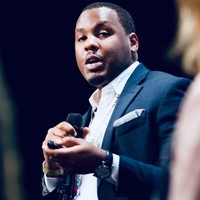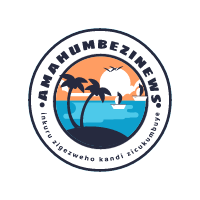Digital Umuganda: breaks language barriers in AI for African languages

Audace Niyonkuru, the CEO of Digital Umuganda.
Niyonkuru: ” Digital Umuganda use of open AI pro structure (infrastructure) for the African local
languages.”
“The reason why we focus on the pro structure primarily is that even though AI has made a lot
of progress in the world including recent introduced CHATGPT and others , we still find that still
it doesn’t master a local context and local languages such as kinyarwanda and this causes a big
problem because it can make information be accessible to only few people that can speak those
languages.”
“And the majority of population especially in rural areas who really need access to information
and services won’t be able to get them because they’re not knowledgeable of how to speak so,
that’s why we primarily focused on building infrastructure for a local african languages that uses
kinyarwanda so that somebody in rural Rwanda can be able to access information around on
shelf, status with COVID-19 and other different topics they might need.

Digital Umuganda Building Common Digital Infrastructure for Rwanda
“And access them using just access that we have, that’s why we primarily focuses on building
infrastructure and most of the time make it open space so that other researchers, startups and
innovators working in our solutions in Rwanda or kinyarwanda speaking population can be able to
Speech is becoming a preferred way to interact with personal electronics and the future of human-machine interaction lies in voice control. However, developers, researchers and startups around the globe working on voice-recognition technology face one problem alike: A lack of freely available voice data in their respective language to train speech-to-text engines. Although machine-learning algorithms like Mozilla’s Deep Speech are in the public domain, training data is limited.
To use that infrastructure and build the solution in other Swahili or any other African languages.
We also worked on questions and answers, CHATBOT, and context spectrum.


Mbaza AI Chatbot is a chatbot that enables citizens to access information
A lack of pandemic-related reliable information among the population is a key challenge in fighting the COVID-19 pandemic in Rwanda. Currently, many citizens do not have access to actionable, easy-to understand and up-to-date information they need. Therefore, this project aims to develop an AI-powered chatbot to ease information and knowledge dissemination in Rwanda. This chatbot will enable Rwandans to ask individual questions regarding COVID-19 and receive verified reliable answers 24/7 from anywhere.
The solution will build on existing COVID-19 information systems operating in Rwanda, including a COVID-19 call center run by the Rwanda Biomedical Center (RBC) and a USSD chatbot to conduct self-screening. Additionally, the Rwandan Information Society Authority (RISA) has developed a first prototype WhatsApp platform to share information based on the global WHO application.
This is our 5th year, we started operations towards the end of 2018 and we actually
” incorporated early 2019 February so, this is our 5th year in operation.”
Basically, our work has been ensuring that AI works for everyone.
As I said before, even though they have been negative on AI especially when it comes to
language technology it still only works for major languages and cares to really capture the
cultural nuances or even the aspect of under used languages such as kinyarwanda.
So meaning it will not be able to reach the benefit of AI as much as we could because it is
simply a narrow bit to the most desirable population.
Today’s Internet – and consequently the technologies and services built on top – is heavily skewed towards English, in a world where English is only spoken by 20% of the global population, and only 5% natively. If we want technology to become more inclusive, we need to make sure that future technologies – especially doors to access information and services – exist in many languages. We believe voice recognition technology can and must be one of these doors.

Digital Umuganda Building Common digital infrastructure for voice Data Student
So, our work is to make sure that AI it works for local African languages meaning that next time
we go to GPT to be able to translate some information or someone in Rwanda who try to get
information on the work that we do, they will be able to get it in the local language and that’s
where we will be able to reach the benefit of AI.

Digital Umuganda harnessing the power of voice technologies to democratize access to information in African languages
I think the challenge before was that people didn’t really understand the benefit of AI and when
we started it was still nascent and in the industry there was a lot of misunderstanding and not
getting the higher potential of technology but I think now it’s changing.
Another big challenge is that the use of intensive industry requires a lot of research, computers
which cost a lot of money and also specialized skills like Machinery and engineers that also
requires resources to put into a place. But I think there has been advancement to ensure that it
is provided but I think when challenges are solved there will be a lot of potential for AI in
Rwanda.









